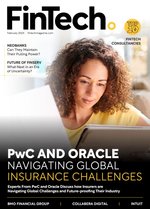Citi Explores Quantum Computing for Portfolio Optimisation

The group tasked with identifying and harnessing emerging technologies for Citi, Citi Innovation Labs, has partnered with Classiq to leverage AWS’ quantum technologies platform Amazon Braket, to explore how quantum computing can improve portfolio optimisation.
In exploring the perks of quantum computing on bank portfolio optimisation, Citi Innovation Labs partnered with Classiq for their specific quantum computing expertise and support.
Classiq operates a stack that allows modelling at a higher level of abstraction tailored for quantum software development – an innovation that Citi believes can help bridge the gap between quantum information and the financial world.
By partnering with Classiq, Citi also gained access to its team of subject-matter experts and tools that make it easier to design quantum algorithms.
And, Classiq itself leverages Amazon Braket to access the on-demand simulators and quantum processing units (QPUs) to deliver its stack.
How quantum computing can optimise financial portfolios
Before diving into how quantum computing can optimise portfolios, it’s important to first understand what portfolio optimisation actually entails.
Per AWS, it is the process of selecting an optimal mix of assets such as stocks, bonds and other financial instruments to achieve the highest possible returns for a given level of risk.
Of course, while models, research and software exist to help financial services companies optimise today, and meet Basel requirements – quantum computing may represent the next frontier in optimisation.
So what is holding back quantum computing from pioneering new portfolio optimisations today? Well, in its current stage of development – known as the Noisy Intermediate-Scale Quantum (NISQ) era –quantum computers face several limitations due to qubit count and noise.
This effectively constrains the capacity of quantum applications, but explorations in the space, such as Citi’s latest with Classiq, are helping to find ways of making quantum computing more applicable to the world’s industries.
In particular, the prime candidate for finding a speedup to portfolio optimisation today through quantum computing lies in Quantum Approximate Optimisation Algorithms (QAOAs).
Indeed, in the case of Citi and Classiq’s study, applying QAOA to portfolio optimisation was the core investigative focus, particularly, how adjustments to the algorithm’s penalty factor impacted its performance.
For Citi and Classiq, if QAOA algorithms ultimately prove to have comparative advantages over classic methods to achieve portfolio optimisation, the subsequently required fine-tuning strategies to the algorithm will be worth it.
Citi says it could pave the way for improved results in portfolio optimisation and other complex challenges that the organisation, and other leading banking firms, currently face.
For Citi, Classiq and AWS’ full investigative report, you can follow the link here.
**************
Make sure you check out the latest edition of FinTech Magazine and also sign up to our global conference series – FinTech LIVE 2024.
**************
FinTech Magazine is a BizClik brand.



